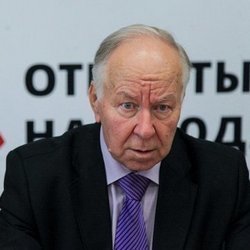How Tatarstan to vote on amendments to Russian constitution
The residents of the republic will be invited to 2,762 polling stations on April 22
In less than 50 days, on April 22, Russia will vote on a package of amendments to the Russian Constitution. On March 10, the State Duma will consider them in the second reading. The Central Election Commission has distributed 14,8 billion rubles allocated from the federal budget for the Russian vote on amendments to the Constitution.About how voting can be organized in Tatarstan and why it is proposed to evaluate not individual changes but only the entire package as a whole — read in the material of Realnoe Vremya.
Central Election Commission of Tatarstan: everything will be in Order
The popular vote on the package of amendments to the Constitution is an unprecedented event for Russia, so it is not yet clear how it will be organized.
In accordance with the order of President of the Russian Federation Vladimir Putin dated February 14, the CEC is responsible for organizing the preparation of the all-Russian vote on the approval of amendments to the Constitution of the Russian Federation, with the participation of election commissions of the subjects of the Russian Federation, territorial and precinct election commissions.
“The regulatory act regulating the procedure of the all-Russian vote will be the Procedure for preparing and holding the all-Russian vote on the issue of approving amendments to the Constitution of the Russian Federation," the CEC clarified. “At the moment, the draft Order is being widely discussed and, obviously, will be adopted in the near future. According to the draft Procedure, the vote will take place at regular polling stations (we have 2,762 polling stations in the republic). It is envisaged that additional polling stations can be established in places where voters temporarily stay (hospitals, sanatoriums, railway stations, airports).
The CEC clarified: at the last elections, 49 precincts were formed on the territory of the republic in places of temporary residence (43 of them in hospitals, 4 — in jail, 1 — at the railway station, 1 — at the airport). Voters will have the opportunity to vote outside the premises, within three days before the voting day, and also, using the 'Mobile voter' mechanism, at the actual location. Polling stations will be open from 8 to 20 hours.
“This is an advisory procedure”

According to Fomin, this will be a new procedure for Russia — not a referendum or an election:
“Voting is more of an advisory procedure, which is used to find out whether the people approve or disapprove of the changes being made.

View “from the inside”
Yevgeny Sultanov, the head of the department of constitutional and administrative law of the faculty of law at the KFU and a member of the working group on amendments to the Constitution of the Russian Federation, told Realnoe Vremya how the voting ballot on amendments to the Constitution will look like and in what order these amendments will be accepted:

Yevgeny Sultanov believes that this is correct — voting on each amendment means initiating a discussion. Besides, he recalled, this is how the Russian Constitution was adopted in its entirety.
According to him, the biggest disputes among the working group arose regarding numerous proposals to amend the preamble of the Constitution, since “everyone sees the development of Russia in their own way” and in the end, it was decided to abandon this idea. Also, Sultanov says, it was decided not to amend the other most controversial proposals. However, he is disappointed that his proposals to amend the Constitution with provisions on constitutional statutory courts of the Russian Federation and on the status of the bar as an element of civil society were not accepted, and that the wording and definition of the concepts of “civil society” and “public unified power” were not enshrined in the Constitution.
The vote's price
The CEC of the Russian Federation distributed 14,8 billion rubles allocated for the Russian vote on changes to the Constitution: regional commissions will receive 14,6 billion rubles — and 11,1 billion of this amount will be used to pay employees of election commissions. The work of an employee of the precinct election commission (PEC) will be paid at the rate of 37 rubles per hour, for 30 days they will earn 10,000.
The CEC of the Russian Federation will receive 80 million rubles and will spend it on the remuneration of attracted specialists, communications and travel expenses. Another 110 million rubles will be transferred to federal executive authorities, which are responsible for Russian diplomatic missions and military units, to organize voting outside of Russia.
The CEC will spend 925 million rubles on a campaign to inform the Russian population about the vote. Due to the tight deadlines for preparing for the vote, the CEC had the right to sign contracts with companies that have already been involved in federal election campaigns. There are no contracts yet, but IMA-Consulting and Mikhailov & Partners are already conducting preparatory work. The website of the all-Russian voting 'Constitution 2020'" will work when the law on amendments comes into force.